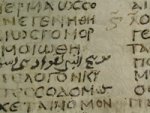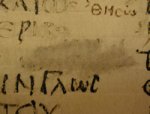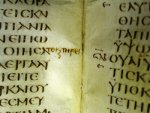here are my thoughts...
planning your personal bible study can be a good thing...but ironically my most successful and significant bible studies were the ones i -hadn't- planned...
study bibles are ok but i prefer commentaries...they tend to go into more detail...there are lots of free commentaries available with esword for those who want them...
i would not say to -avoid- the king james version...though i would suggest that most readers should be looking up every other noun or verb or adjective or adverb from the KJV in the 1828 webster's dictionary to make sure the meanings haven't changed in the past 400 years without their knowing it... one big benefit of the KJV is that the classic word study references are keyed to the KJV... still i would not make the KJV my 'base' study bible...
i don't know what the author means by 'moses did not cross the red sea'...unless they are referring to the 'sea of reeds' explanation which is really just a theory that liberal scholars have suggested to do away with the miracle...
i am surprised that the article doesn't recommend the new american standard bible...so i am going to recommend it myself

also i should say that the NRSV has been criticized for some liberal translation choices...
i would prefer the new living translation over the contemporary english version...the CEV takes quite a bit of liberty in paraphrasing...
i definitely agree on the importance of prayer in bible study... i remember reading about a method that luther suggested for combining bible study with prayer...he would study a text of scripture and then say a prayer based on what he learned from the text...
focusing on the new testament first may work for a lot of people...but in my case it didn't work for me at all...i was totally confused...the new testament assumes 4,000 years of prior events and revelations that i was not familiar with...
similarly starting with john may work for a lot of people...but to me john is conceptually the most -difficult- of the four gospels...i would say mark or luke are the easiest...
also i notice that the article neglected to mention acts...acts is the easiest transition from the gospels to the epistles...
and about revelation...personally i believe 90% of the prerequisite knowledge for understanding revelation is in the new testament... while i would not go as far as to say someone -shouldn't- read the old testament prophets before reading revelation...i will say that i have known people to arrive at mistaken eschatologies based on a misguided obsession with old testament prophecy...
topical studies can be fun...i especially like to choose a really random topic like 'colors in the bible' or 'dust in the bible' and looking up all the relevant passages... a concordance or a bible search engine can help with that...i have found that the topic indexes in study bibles are usually pretty generic...
i don't have a bible notebook or journal but i probably should make one...
i don't use a highlighter or write in my bible because it just feels weird to mark up a book...
if you like footnotes...you will love the NET bible...the footnotes discuss the textual and translation issues in detail...so that you can see -why- the translators made their choices...
chain references can be useful...though i am not entirely in agreement with the 'principle of first use' that i think this article is getting at...i tend to follow what i call a 'rule of proximity'...where you prioritize other references that are closer in time or in authorship to the text you are trying to figure out...




